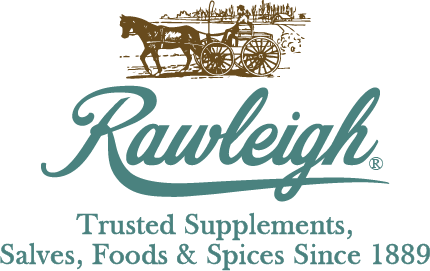Take care of your immunity this fall
It's Fall, and everything we love about the season is falling into place as it should. It's football season, everything is made with apples or pumpkins, the leaves are changing color on the trees, and you can wear jeans and sweaters.
Admitting that this season is your favorite is okay. It's not just you. While you are out and about taking in these beautiful changes, there are lesser-known elements that could ruin your Fall season.
According to the Centers for Disease Control, numerous fall-related factors might put people in danger if they are unprepared. You can learn everything you need to know to ensure your safety when the seasons change with a little bit of research. Keep reading and we will share some simple tips to improve your immunity this Fall.
Although strengthening your immunity seems appealing, doing so has proven difficult for a number of reasons. In fact, the immune system is a system, not a single thing. It needs harmony and balance to work successfully. But that doesn't mean that research on how lifestyle choices affect the immune system isn't important or interesting. Researchers are looking at how age, psychological stress, physical activity, food, and other factors affect the immune response in both humans and animals. Meanwhile, general healthy lifestyle practices make sense because they are known to improve other aspects of health and are likely to support immune function.
Keep a balanced diet
A nutritious diet is essential for a robust immune system, as it is with most other aspects of your body. To do this, make sure you consume an abundance of fruits, vegetables, legumes, whole grains, lean protein, and healthy fats.
A nutritious diet will assist in guaranteeing you're getting enough of the micronutrients that play a role in keeping your immune system in tip-top shape in addition to giving it the energy it needs, such as:
Bananas, chicken, salmon, tuna, green vegetables, and potatoes all contain vitamin B6 (with the skin)
Citrus fruits like oranges and strawberries, as well as tomatoes, broccoli, and spinach, all contain vitamin C.
Almonds, sunflower and safflower oils, sunflower seeds, peanut butter, and spinach all contain vitamin E.
Regular exercise
Exercise is crucial for maintaining good health and a strong immune system, in addition to helping you grow muscles and reduce stress.
Exercise can help your body's immune system by increasing circulation, which makes it simpler for immune cells and other substances that fight infections to move around your body.
In fact, studies have demonstrated that even just 30 minutes a day of moderate-to-vigorous exercise will boost your immune system. This implies that maintaining activity levels and engaging in regular exercise should be a priority.
Hydrate yourself thoroughly
Your body needs water for a variety of vital functions, including immune system support.
Water makes up the majority of the lymph, fluid in your circulatory system that transports vital immune cells across your body to combat infections. Dehydration slows down lymphatic flow, which might occasionally compromise the immune system.
You regularly lose water through your breath, urine, and bowel movements, even if you're not working out or perspiring. Make sure you're replenishing the water you lose with water you can utilize to strengthen your immune system, which begins with understanding how much water you should be drinking each day.
Get lots of rest
While sleep may not seem like an active activity, your body is nevertheless engaged in several significant processes when you are asleep. For instance, vital chemicals that fight infections are produced while you sleep.
According to studies, persons who don't get enough good sleep are more likely to become ill after being exposed to viruses like the ones that cause the common cold.
Knowing how much sleep you should receive each night and what to do if it isn't happening is crucial for giving your immune system the greatest possible chance to fend off infection and sickness.
Take supplements
According to research, taking supplements of particular vitamins, minerals, herbs, and other substances can boost immune function and possibly offer some degree of illness protection. A well-balanced diet should provide us with enough levels of essential micronutrients, although this can be challenging to do.
Nutrient shortages affect a large number of people worldwide. Nearly 95% of Americans do not receive enough vitamin D, 84% do not receive enough vitamin E, 46% do not receive enough vitamin C, 45% do not receive enough vitamin A, and 15% do not receive enough zinc each day.
According to studies, immune function can be hampered by even a slight shortage of one or more of these vitamins and minerals.
Rawleigh’s Perfor-Max has the most effective botanical antioxidant blend that helps boost your immune system. It contains multiple superfoods and natural ingredients that help you strengthen your immunity not just this Fall, but all year round. It is available at 15% off for the month. Check it out on our website today!
* These statements have not been evaluated by the Food and Drug Administration. This product is not intended to diagnose, treat, cure or prevent any disease. It is recommended that a physician be consulted before taking any supplements. Results are not typical and may vary.

